 |
 |
 |
I think the greatest endorsement I can give to Death Parade is to say that even when I don’t like it, I can’t look away for a moment.
This is a tough series in many ways, among the most obvious being that it’s often not easy to watch. But it’s also tough to judge – not in terms of conception and execution (where it’s stellar) but ethically and morally. After four episodes and an OVA I’m still not sure what we have here – what Death Parade is trying to say, and why. Perhaps its intent is nothing more than to provoke a visceral reaction from the audience, and if that’s the case, I think it’s definitely mission accomplished.
My initial take on this week’s pairing was that if last week had two characters who clearly both deserved another chance, this was two who both belonged on the Onii elevator. And for a while, I thought that’s where we might be headed, with Tateishi Yousuke (Morita Masakazu) and Tachibana Misaki (Yamaguchi Yuriko) being presented as an intentional counterpoint to last week’s much more innocent pair. But as usual DP did a brilliant job of muddying the waters by episodes end – in more ways than one.
Make no mistake, even by Death Parade standards this was certainly not a feel-good episode. In Yousuke and Misaki we had two characters who weren’t especially likeable, yes, but it goes deeper than that because this story again asks serious questions about the entire premise. “Who are you to make decisions like these?” Misaki asks Dekim accusingly – and it’s a question I find myself asking as well. He later says “I draw out the darkness of their souls” and while not specifically an answer to her question, it may as well be – clearly, he sees his role as peeling away the artifice his “guests” erect over their true selves and casting judgement on what lies underneath. But there are definitely times when I feel that if this is how the Universe chooses to judge our eternal souls, the Universe is kind of an asshole.
Of course, a key question (and one I’ve asked before) is whether we’re in fact supposed to feel that way. I suspect the answer is yes, but I’m not certain – and I’m not certain it even matters, if indeed DP is merely acting as an agent provocateur. Dekim certainly gives us all the more reason to feel dissatisfied with the fairness of his operation, using a cheat to skew the results of the combat between Misaki and Yousuke when he feels they’re not producing enough tension for his purposes. But he later seems to show genuine “human” compassion in consoling the two tortured souls when they realize the truth of what’s happened – though it’s the hard genius of his character that we can’t be sure it isn’t just part of his job description. And Onna again seems to play the audience proxy role here, emotionally reacting to highly abnormal situations in much the way a normal human probably would.
As for that duel, it’s an arcade setup called “Battle of Life“, a classic fighting game cleverly featuring the two leads as the only character choices and employing the unmistakeable Tachiki Fumihiko as the narrator. As the story unfolds we realize that both principals have had pretty depressing lives. Misaki is a reality TV Mom with five kids who’s been abused repeatedly, and now seems to view her children mainly as props and treats her colleagues like dirt. And Yousuke is an otaku (perhaps a hikikomori) who continually pushes away his stepmother despite her sincere efforts to reach out to him. And once the nature of their deaths become clear, the picture gets even bleaker – Yousuke committed suicide (which in most Western religions would make this whole pretext moot) and Misaki was strangled by her manager after taking her abuse (verbal and physical) one step too far.
The question Death Parade forces on us is whether either of these two deserves another chance. Certainly Misaki’s behavior during the episode is pretty damning: she convinces herself the whole thing is itself a reality TV stunt (which may have prompted Dekim to goad things along a bit) and later, repeatedly pounds Yousuke’s head into his console after Dekim sabotages her joystick, with enough force to kill him if he hadn’t already been dead. Certainly, both parties show genuine remorse in the end – but is showing remorse alone enough to make amends? If not, what is the qualitative difference between Misaki and Yousuke – what prompts Dekim to send him upstairs, and her downstairs?
I suppose it wouldn’t be Death Parade if it were easy to answer that – and the nature of the series itself is part of the conundrum, not just the specifics of this storyline. I think the best argument that could be made is that even in the end, Misaki’s sorrow seemed to be self-centered – less a concern about the children she’d be leaving behind, but in the act of leaving itself. In Yousuke’s case I think the remorse was more genuine and more self-directed – anger at himself for the hurt he’d caused his stepmother by his stubbornness and pettiness. Is that enough? I don’t know, nor do I know if neither player getting a chance at reincarnation is even one of the options. But I do feel if either one deserved the chance, it was Yousuke – and that if the Universe were to err, I think it would be vastly preferable to err on the side of forgiveness.
This wasn’t an episode I would say I felt good about, but at the same time I think it was pretty close to brilliant. As I said last week it’s harder to get audience buy-in telling episodic stories than ones with character continuity, and it’s also harder to emotionally connect when telling stories about basically unlikeable characters. I love the fact that Death Parade isn’t looking for easy routes here – it’s taking the harder path with the choices it’s making, including not connecting all the dots for the audience. I don’t believe we’re supposed to feel good watching this episode – not about Misaki and Yousuke, nor about the way Dekim handled their arbitration. I’m certain the show’s reward is going to be dismal disc sales, but I’m fervently glad anime still has a tiny corner for shows that are more than amalgams of production committee demands and a marketing strategy.
 |
 |
 |
 |
 |
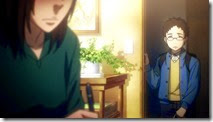 |
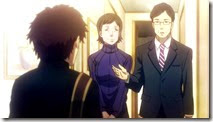 |
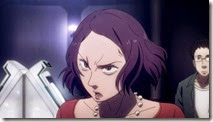 |
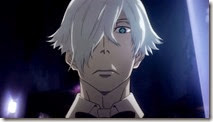 |
 |
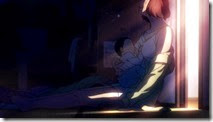 |
 |
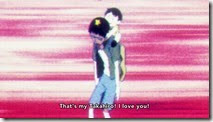 |
 |
 |
 |
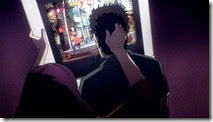 |
 |
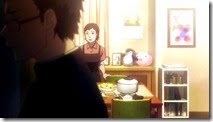 |
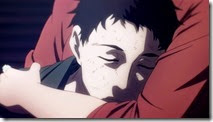 |
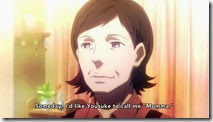 |
 |
 |
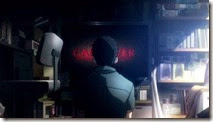 |
 |
 |
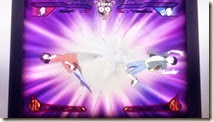 |
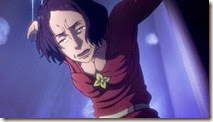 |
 |
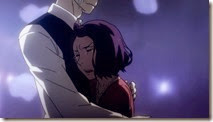 |
 |
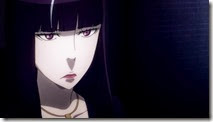 |
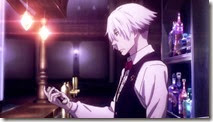 |


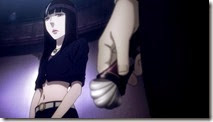
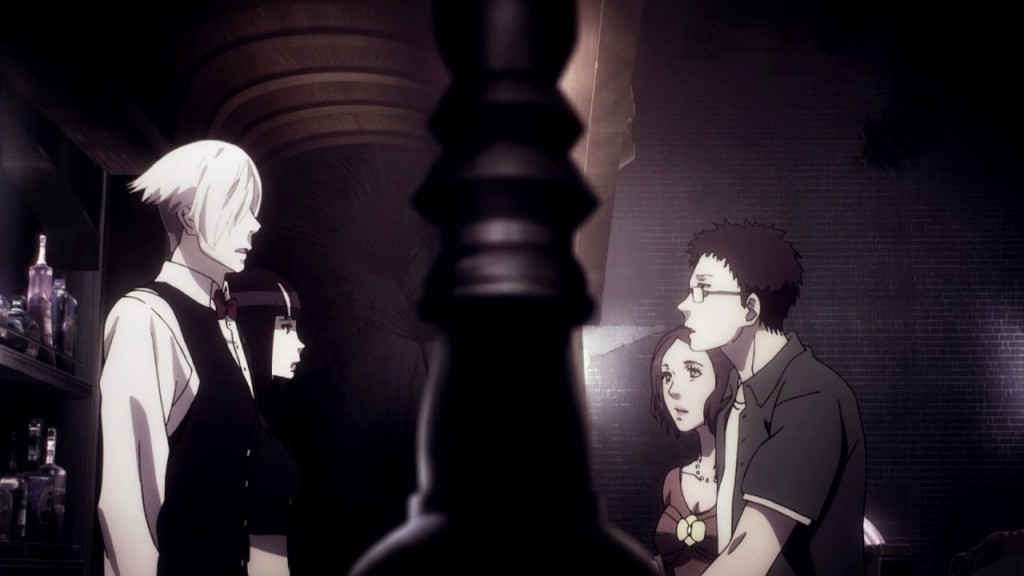

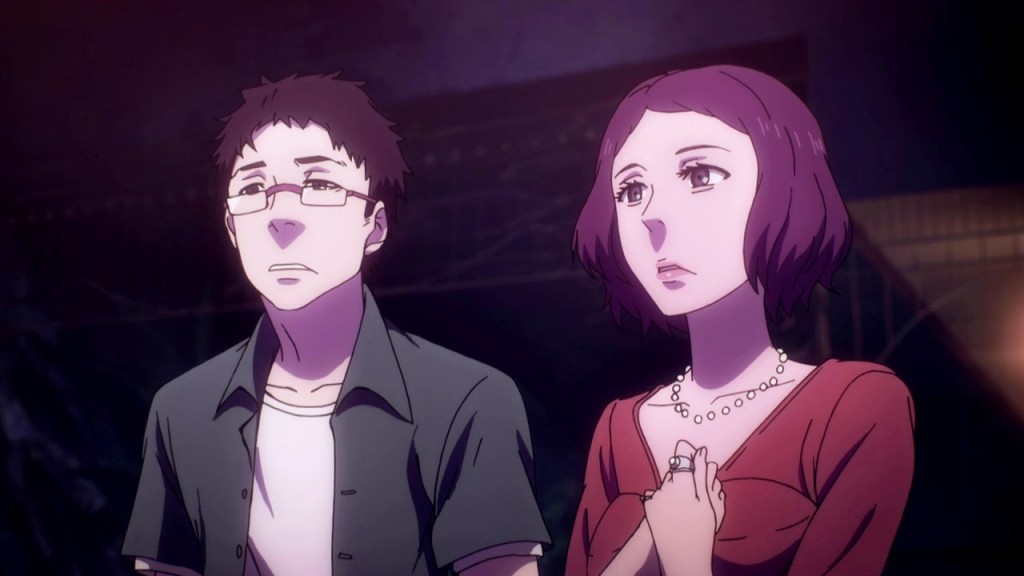
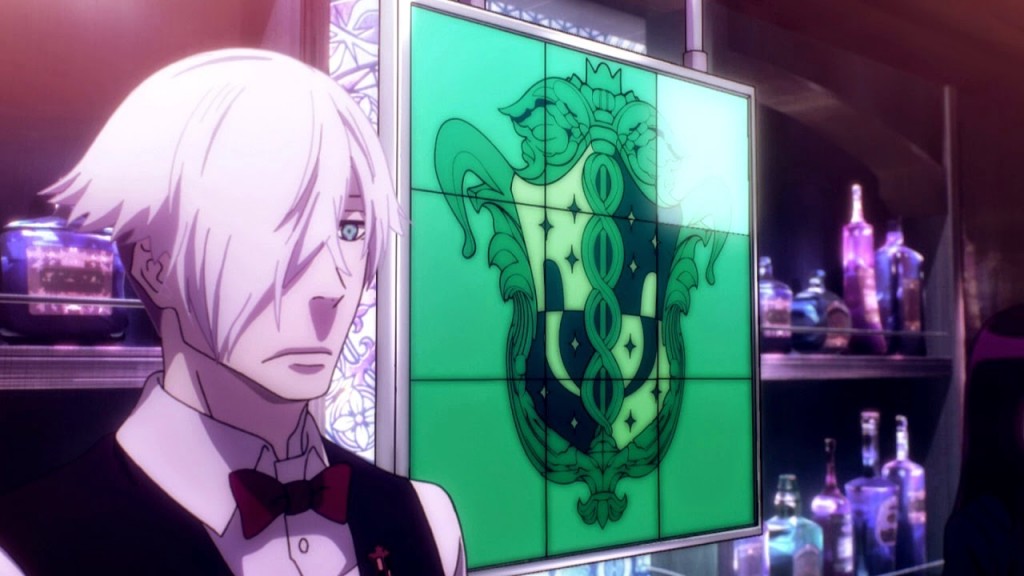
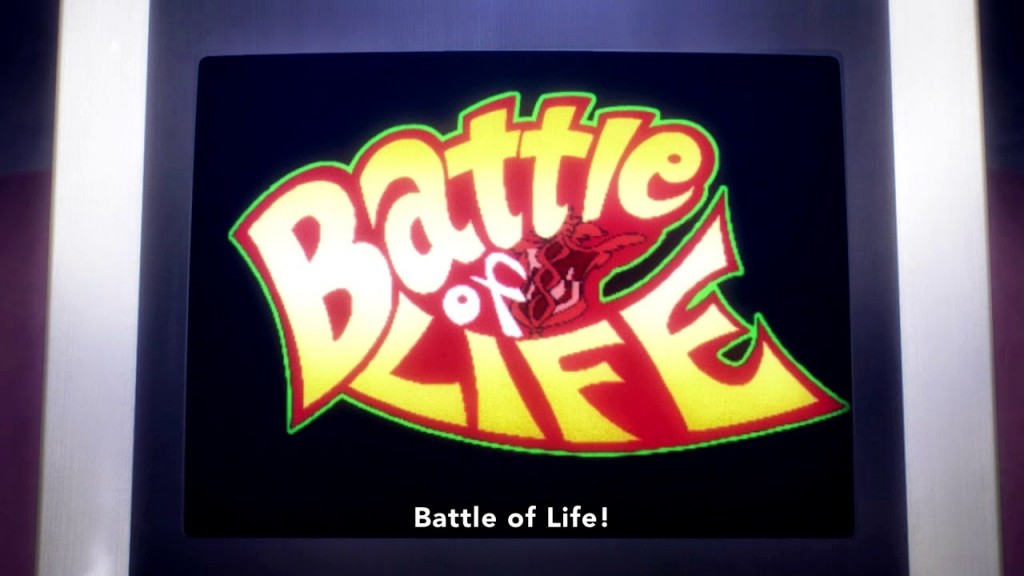
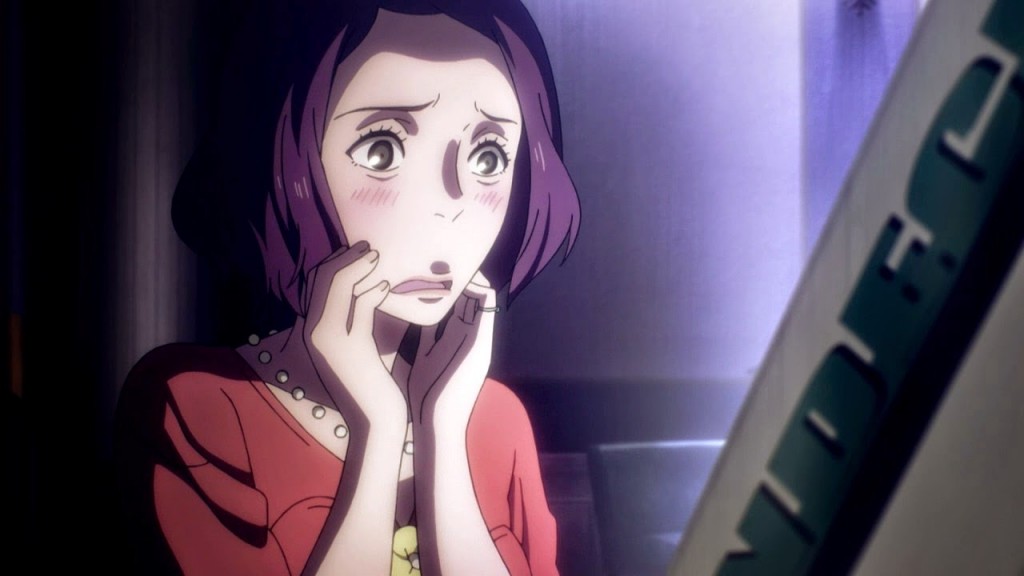
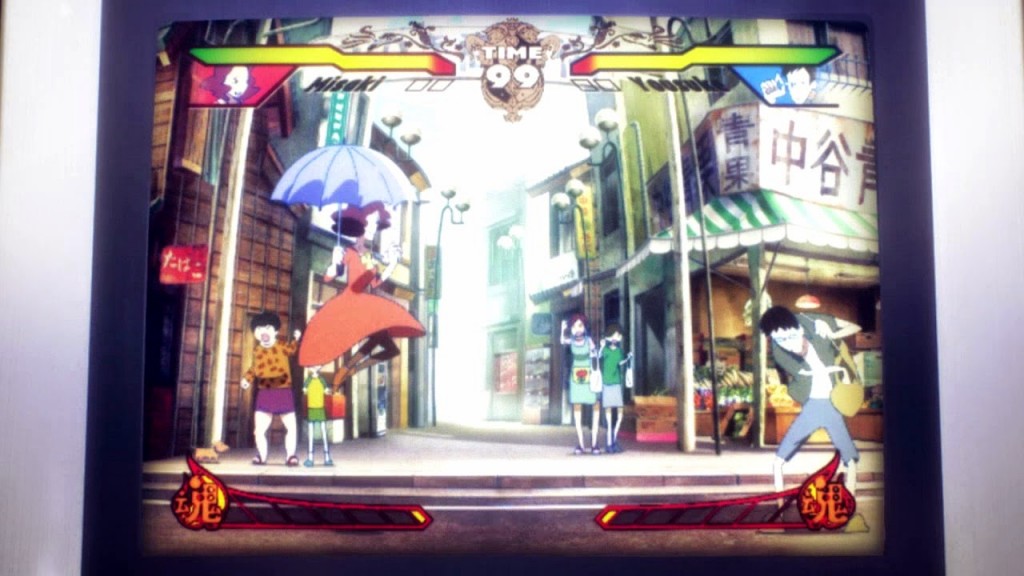
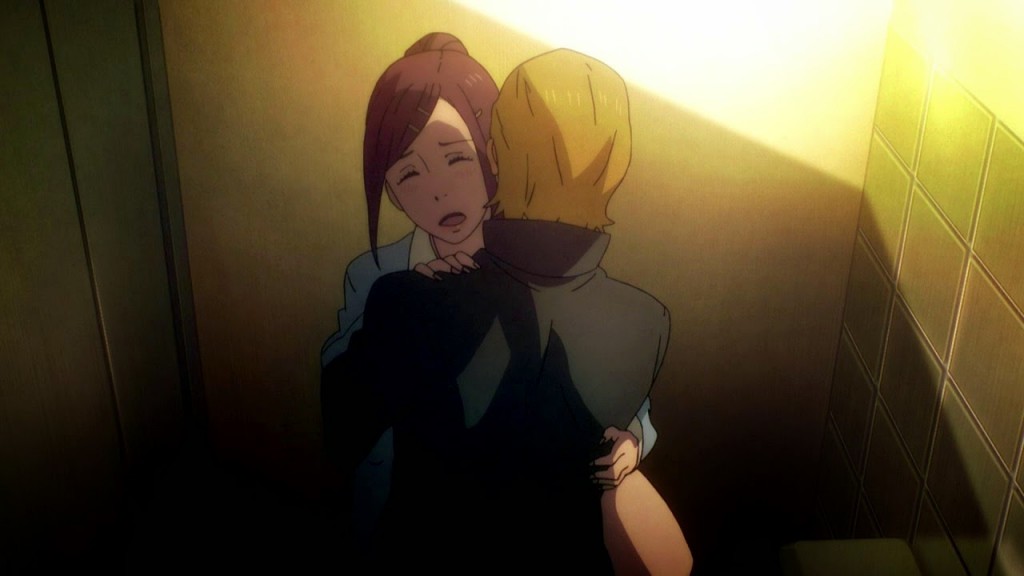


chiakimagoto
January 31, 2015 at 9:48 amAs for getting a visceral reaction, this episode sure got to me…………….me too i would like to know what made him decide to send Misaki down. This serie is sort of depressing but i still need to watch………..
great review……..!
Kaname
February 1, 2015 at 4:03 pmIt's a powerful one. I watch it and it forces a reaction out of me. Damn it I love this show!
Ben Name
January 31, 2015 at 11:20 amIn all honesty, she DID bash the guy's head into the screen several times. Though personally I would have sent both to reincarnation. She clearly had a miserable life.
Hangman
January 31, 2015 at 10:39 pmIt's lonely at the top. Misaki really only ever thought about her own happiness, even when she pleaded for her children. I guess Decim decided she had no love left in her to give, Yousuke on the other hand wants nothing more than to give back to his parents. Regret is a mandatory aspect, but having the resolve to selflessly act on in it seems to earn you the reincarnation route from Decim's POV. I wasn't as convinced of that last week.
Zeta Zero
January 31, 2015 at 12:29 pmWho are you to make decisions like these?
I thought that was the only really meaningful thing here in light of all the previously provide information. Considering the rigged arcade machines and the way Mr agent provocateur influences the outcome more than it should. Consider if Onna had messed up Decims remote control earlier to inadvertanly favour one player. It would be batter to have these games set up so contestants shoot themselves in the foot, rather than third party changing the rules at the flick of a switch.
elianthos80
January 31, 2015 at 1:36 pm'Err on the side of forgiveness'. Pretty much. They should both have gotten into the white mask elevator… the woman had issues both as individual and as a mother, her behaviour ranged from questionable to appalling but her very last thought and lines were about her children being left behind. And prolonged abuse by a close one is not the best nurturing ground for one's mental health/balance and coping behavioral patterns, just saying. It seems Decim non-human nature coupled with a comparatively more limited arbitering experience (vs Nona's insight for instance) is highlighting this whole afterlife setup fault lines.
Talking about flawed judgement system or the legitimacy of an afterlife judgement system in itself, we might actually get some more info next week. I've some expectations on this front concerning old Lotus Man…
Hangman
January 31, 2015 at 10:20 pmThis was a big step-up from last week. The outcome felt more reasoned imo, and the execution in the back stories more resolved. I was a bit peeved about Decim's new device and I don't see why they didn't just follow on from the other games and have the characters feel the pain of the punches. To be fair, neither palyers weren't above hurting one another. I was pleased that the episode was acknowledging the faults and fallacies of the Quindecim system But as mentioned, the series seems intent on provoking, which sounds like something urobutcher has been accused of, and it's working on that level for varying reasons. I won't be very impressed if that is all the show is promising though. The resolution and upcoming episodes will ultimately determine whether the series is a elite or worthwhile I think. Ambitiousness is a good thing, so whatever happens in two months, this show will remain an interesting experience.
Thomas Klaehn
February 1, 2015 at 12:15 amI hope that this isn't a dumb question, but what makes Yousuke and Misaki a couple? They presumably died at the same time, but not at the same place. The only pre-death connection between the two of them that I could see was that Yousuke was casually familiar with Misaki's television series.
admin
February 1, 2015 at 12:38 amWho said they were a couple? That was never a prerequisite, dating all the way back to Death Billiards.
Thomas Klaehn
February 1, 2015 at 11:05 pmI didn't realize that it was necessary to watch Death Billiards to understand Death Parade. I just assumed from the first three episodes of DP that a premise of the series was that the pair had unresolved issues between them. That being said, anytime that two strangers are paired up and told that they are playing with their lives on the line, wouldn't it be logical that the person who was afraid that they were losing the game try to disable or kill the player who was winning (DB and DP04)?
admin
February 1, 2015 at 11:29 pmI don't think that's logical at all. I think if you do watch Death Billiards, you'd have a better idea of why the series doesn't take that perspective.
maverickmann84
February 1, 2015 at 1:58 amI think you're mistaken as to the fact that one goes upstairs and one goes downstairs. I don't remember ever hearing that said, and this week all that was said was "you'll find out once you've stepping INTO the elevator" implying that the real answer is found out when you arrive. I think the reason for the two elevators is that it is just meant to show that there are two possible outcomes, not that only one goes to one place and the other to another place. The reason you can't share an elevator seems to be more related to the fact that its your soul not a mix of both of your souls in one new body. The lights on the elevators seemed to move in the same direction (both meaning the elevator went up) though I didn't pause or rewind it was just an observation made in real time. If one had to go up and one down it would effectively ruin a lot of this show. It silly to have two people with nothing bad in their past (like last week) fight for a chance at one going to hell. That would be dumb, and wouldn't make sense in context of the show.
Was I wrong, or maybe the translation wrong when I saw Dekim say he "takes in the darkness" maybe implying that he cleanses the soul?
Helen
February 1, 2015 at 5:17 amI'm fairly certain the singer on the first episode confirmed that the oni mask means the abyss and the women means reincarnation.
admin
February 1, 2015 at 6:33 amThat's certainly how I remember it.
Kaname
February 1, 2015 at 3:58 pmI posted this in myanimelist. Just wanted to let it out.
I love this anime but I disagree with the judgement. WTH? Why is a man that choose to end his life is better than a woman who choose to moveon with it?
Let me be clear, like everyone else we all have thought about suicide – but to actually going trough with it – that man is a COWARD! Shit happens to us all and some ran away but he's running away from eveything by choice – and it's not even that hard a life!
I am a hypocite for saying this yet saying this makes me a better man – SUICIDE DOESN'T SOLVE YOUR PROBLEM, IT REMOVES THE POSSIBILITY OF EVER MAKING IT BETTER!
That mother is an asshole but she had the courage to face life and move the fucking on! In my opinion, she not him deserves to reincarnate!
I'm sorry but this show is just that good…
Some comments just give me pause sometimes. Damn…
That said, I still stick to what I think. We agree to disagree.
dangerly
February 4, 2015 at 4:24 amMoving on with your miserable life doesn't make you a better person than someone who's become so indifferent to it as to commit suicide. I think the thing to take away here, on one level, is that the Hikkikimori had a moment of weakness that cost him his life – a certain combination of circumstance and deep depression can make someone do something one day that they would never do any other; I'm certain that of the hundreds of people who commit suicide every day, that even a year from now, assuming they decided to not go through with it, would have deemed themselves crazy for even considering it. Mr. Hikkikimori, in the end, immediately regretted what he did, and saw the abject pain he caused for those around him; he understood the nature of his sin and was repentant.
Misaki, conversely, showed a constant weakness of character. Yes, as its been painstakingly illustrated, she's had an awful life, and what she's become is largely a product of that. Given her circumstances, however, that doesn't give you a pass to be abusive and manipulative of others in-turn. Whereas Yousuke showed an understanding toward what he did wrong, Misaki expressed her sorrow that she's passed on largely through the guise of the children she's left behind. That's absolutely not to say that she didn't care for or love her children to some degree, but I think it's also undeniable that she accessorized them in a way they clearly did not want.
The theme and connective tissue between this week's pair was that of family – I think Yousuke, in the end, saw the family that he had left behind, whereas Misaki did not. Of course, I'm also in the camp of forgiveness and second chances, but if there's to be an argument on who showed better character, repentance, and empathy, it was certainly Yousuke.
eladnhoj
February 4, 2015 at 2:38 pmA very powerful episode. So far this series has been fascinating. As Enzo somewhat touched on in an earlier post, this show is something like Mushishi where Ginko (here in DP it's Decim, for the most part) presents you with a chance, and what you do with it will mostly decide the next thing that will happen to you. Mushishi also shows some bits of Ginko's own situation and history, so I won't be surprised if this show does the same (as this week's preview hints).
Whatever Decim chooses to do to decide where people go is his call– he isn't bound by any human-made morals after all, maybe by just a very basic "what-you-see-is-what-you-get" principle and what he calls "darkness of the soul" (likely the instinct to harm). But it's good that the show appears to have an overarching plot involving the behind-the-scenes "beings" (Episode 2 plus bits and pieces so far), and that's what I'm looking forward to. I wonder if the addition of Nona is a signal that some things are going to change. It would be interesting to see what kind of "beings" actually judge this fictional world (are they also just like humans?).
The discussions about the results of the judgement don't hurt, too.
eladnhoj
February 8, 2015 at 4:03 pmOops, got the names mixed up. I meant "…the addition of Onna", not Nona.